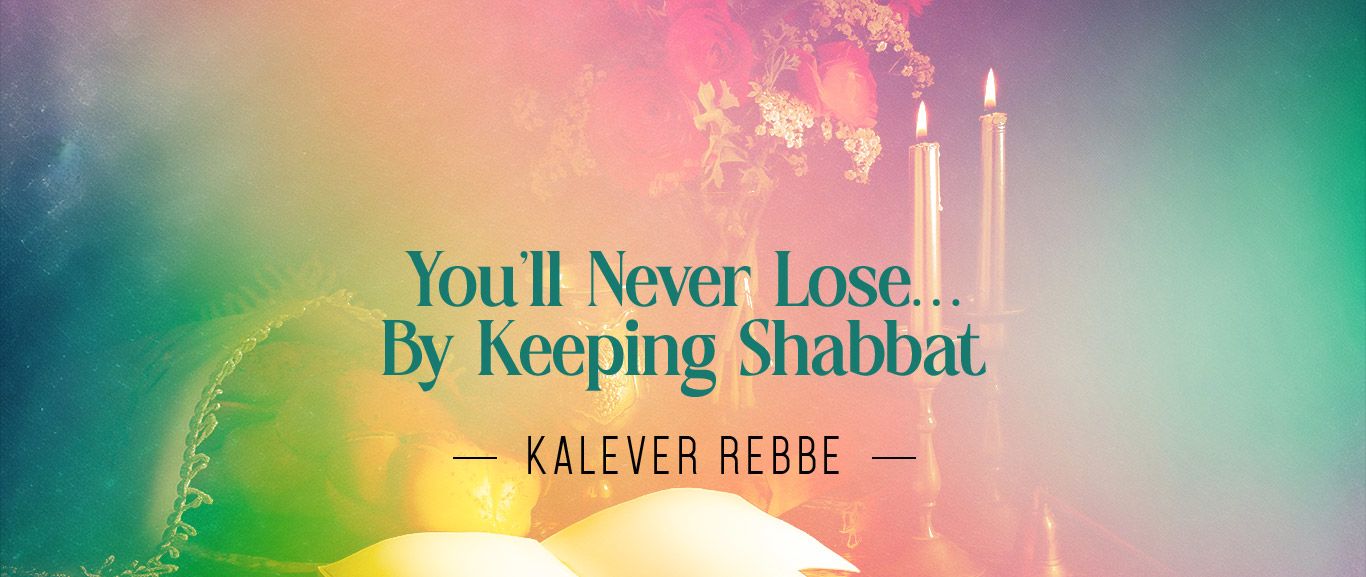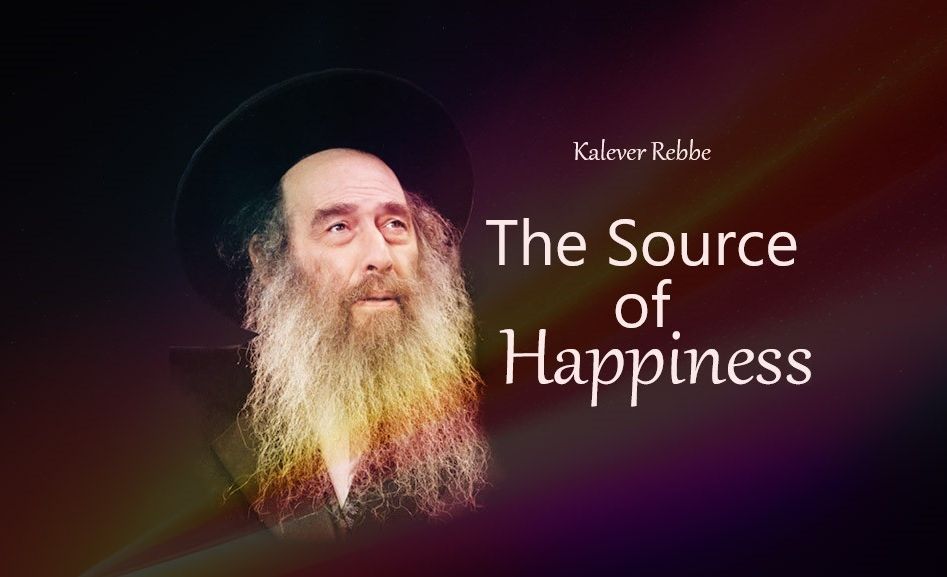
You’ll Never Lose…By Keeping Shabbat
Do you fear that keeping Shabbat might lead to financial loss and be a huge personal sacrifice with no gains? In truth, keeping Shabbat is the source of all blessing and goodness in your life. Don't lose out!

I am the Lord your God, Who took you out of the land of Egypt, out of the house of bondage. (Devarim 5:6)
The Ten Commandments begin with, “I am the Lord your God, Who took you out of the land of Egypt, out of the house of bondage” (Shemot 2:2) and the positive commandment to follow was, “Remember the sabbath day and keep it holy” (Shemot 20:8).
Why does Hashem first mention Yitziat Mitzrayim, the Exodus, before the commandment to keep Shabbat? Additionally, what is the connection between these two mitzvot: emuna, faith (the mitzvah expressed in I am the Lord your God) and Shabbat?
Uncompromising
After the ninth plague, Pharaoh summons Moshe Rabbeinu and tells him, “Go! Leave here and serve your God.” However, there was one condition: the flocks and livestock had to remain behind (Shemot 10:20).
Typically, in a negotiation, there is always a compromise. Moshe Rabbeinu should have been ecstatic to finally achieve the result of the Jews being allowed to leave Egypt. However, Moshe Rabbeinu, refuses to give an inch and replies to Pharaoh, But Moses said, “You too shall give sacrifices and burnt offerings into our hands, and we will make them for the Lord our God. (Shemot 10:25). All the animals would have to be allowed to go. There would be no compromise.
This infuriated Pharaoh and he said, “Go away from me! Beware! You shall no longer see my face, for on the day that you see my face, you shall die! (Shemot 10:28).
It would have been natural for Moshe Rabbeinu to leave heartbroken. He had one mission, one task, one objective, and with this new decree the door of hope to try and negotiate the Jews’ freedom had been closed. Now, if Moshe Rabbeinu would appear before Pharaoh, he would be killed without trial. It was customary in those days for masters to kill their servants without a trial, and Moshe Rabbeinu was a slave in the house of slaves.
However, the Torah tells us that Moshe Rabbeinu confidently stood his ground and said, “And all these servants of yours will come down to me and prostrate themselves to me, saying, ‘Go out, you and all the people who are at your feet,’ and afterwards I will go out.” [Then] he [Moses] exited from Pharaoh with burning anger” (Shemot 11:8).
Moshe Rabbeinu didn’t leave depressed and broken like a servant whose master ignored his pleas. Rather, he left with his head held high and fuming with anger.
After this story of Moshe Rabbeinu acting in accordance with Hashem’s directives, which is spellbinding to any logical person, everything Moshe Rabbeinu told Pharaoh came to fruition. And suddenly, Pharaoh’s view changed dramatically, resulting in the release of millions of slaves with all of their belongings and even additional wealth.
Every element of this story teaches us that when someone fulfills Hashem’s Will, they will not suffer any losses. In fact, the opposite is true. There are only gains, even when fulfilling Hashem’s Will seems contrary to all logic and reasoning.
The one mitzvah that embodies this duality, of performing a mitzvah that might seem to logically lead to personal loss but actually achieves the opposite, is Shabbat.
We need to always remember what the Zohar HaKodesh teaches, that even though keeping Shabbat and not working that day would seem to lead to personal losses, the exact opposite is true: the flow of all blessings and all the good things one can have in his life is rooted in keeping Shabbat. It might seem like a sacrifice, but all of the good blessings in this world and in your life will come to you many times over as a result of keeping Shabbat.
The opposite is also true. When someone violates Shabbat, the punishment is severe. Even nowadays when we don’t have a Sanhedrin that can decree a death penalty for a violation of Shabbat, we know from Chazal that certain circumstances in life determine that a person is considered like a dead person. For example, someone who is poor or blind is considered like a corpse. Chazal also taught that even though we don’t have a Sanhedrin, the four types of death penalties (Editor: stoning, burning, slaying, and strangling) find their way into fruition one way or another.
Faith and Shabbat
This is the meaning of this pasukim:
- “I am the Lord your God” – who rules everything.
- “Who took you out of the land of Egypt” – against Pharaoh’s will.
- “out of the house of bondage” – who could have killed Moshe Rabbeinu who was faithfully fulfilling My degrees in My name, which led to your leaving Egypt with a tremendous amount of wealth, defying all logic and reasoning. And you saw that I am the King of Kings, the Ruler of the World Who can take action that seems contrary to the laws of nature, and Who provides goodness and riches to all.
After a Jew understands this, when he has that faith, he can be commanded, “Remember the sabbath day and keep it holy”. By keeping Shabbat, you bear testimony to the reality that Hashem is in control of everything, of every outcome, of every reality in this world. You shouldn’t think that you will be sacrificing or suffering financially or otherwise by keeping Shabbat. The opposite is true. The more careful a Jew is about keeping Shabbat diligently, the more he will be blessed with only good things, as we saw during the story of the Jews leaving Egypt.
May it be Hashem’s Will, by keeping Shabbat and by accepting all the mitzvot lovingly, you will merit all of the blessings and good things in your life, as in the times of the Exodus, with wondrous signs.
***
The Kalever Rebbe is the seventh Rebbe of the Kaalov Chasidic dynasty, begun by his ancestor who was born to his previously childless parents after receiving a blessing from the Baal Shem Tov zy”a, and later learned under the Maggid of Mezeritch zt”l. The Rebbe has been involved in outreach for more than 30 years, and writes weekly emails on understanding current issues through the Torah. You can sign up at www.kaalov.org.










Tell us what you think!
Thank you for your comment!
It will be published after approval by the Editor.